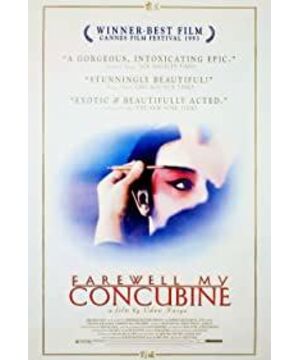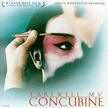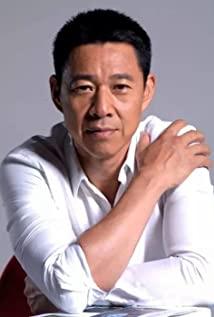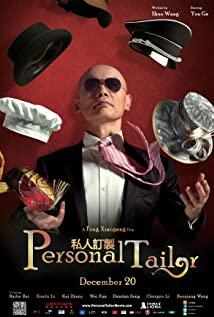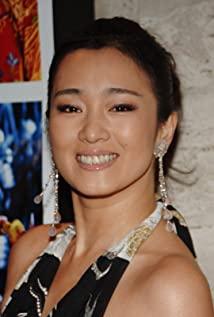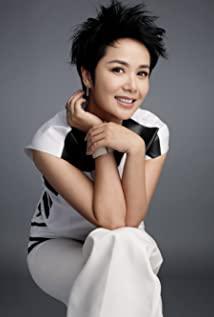Li Bihua's original work begins with a sentence-bitch is ruthless, and actor is meaningless.
Let me talk about the two sex workers inside, one is Xiao Shitou's mother, and the other is Juxian played by Gong Li. We have no way to verify why Xiaodouzi’s mother sent him to Guanjiaban to learn opera, but this woman cruelly cut off Xiaodouzi’s extra fingers and wanted him to enter the theater. This shows how determined the attitude is, perhaps true. Is it what it says in the film-Peking Opera has reached its most glorious era? In any sense, Xiaodouzi's mother is ruthless.
I think Juxian played by Gong Li is perfect. She is a woman of love, justice and wisdom. From the first appearance of Huamanlou to the running to save Duan Xiaolou and Cheng Dieyi, it can be seen that she is different from other women in the dust. Although Cheng Dieyi had a prejudice against her all her life, and never called her "sister-in-law" from beginning to end, we all know that Cheng Dieyi's tragedy is doomed, whether there is Juxian or not. But Juxian has always taken great care of Dieyi. We can see from the period when she forced Yuan Siye to save Dieyi and helped Dieyi quit smoking. Until Dieyi betrayed her during the Cultural Revolution, and Duan Xiaolou was forced to reluctantly say: I don't love her, I want to draw a clear line with her. Finally, this strong woman had to end her life with a rope. Therefore, no matter from which point of view, Juxian is affectionate and righteous.
It shows that Li Bihua does not fully agree with the view that bitches are ruthless.
Let's talk about the actors. The friendship between Duan Xiaolou and Cheng Dieyi has a deep foundation since the time of Xiaoshishi and Xiaodouzi. This is obvious in the film, and I will not analyze it too much. I clearly remember that when Xiaodouzi's mother asked Guan Banzhu to accept Xiaodouzi, she said: If you don't accept him, you will look down on my wife. The leader of the class said: They are all inferior, so who look down on who they say. And finally accepted Cheng Dieyi.
It also shows that Li Bihua does not fully agree with the view that the actor is not righteous. Isn't it meaningless for Li Bihua to say this? In fact, there is an unjust actor in the movie, that is, the little fourth who was adopted and taught by Cheng Dieyi, and he became the fuse of all the last tragedies. In the old society, an actor was justified no matter how he was beaten by the class leader. By the Cultural Revolution, it would be meaningless. Perhaps we can understand it this way. I remember reading a writer’s memory: When he was a child, his family was very poor. His father relied on paid newspapers to support his family and his school. One day he went home and saw his father soak the newspaper in water and then wrap it in sand to increase weight. In order to buy more money. At that time, he demanded to be motivated and wanted to draw a clear line with his father, so he exposed his father, and his father was imprisoned for this reason, and finally died in prison. The comparison between the two is sufficient to show that this kind of thing was inevitable in the society at that time. I think this is a detail worthy of our thinking.
The second detail is the applause during the three theater visits.
The first time was when a Japanese officer went to the theater to watch a play, there was a riot in the audience, and the spectators fled, but Cheng Dieyi remained unmoved and still performed ecstatically, and received rounds of applause from the Japanese officers.
The second time was the Kuomintang wounded soldiers rioting in the theater. Cheng Dieyi could not continue to perform. Duan Xiaolou came forward and said-the Japanese did not watch the theater like this! The result triggered a conflict between the two sides, saying that the ambition of the Japanese is long. Everyone compares carefully. As far as the drama is concerned, what Duan Xiaolou said is indeed the truth. In the end, it is indeed the result. I believe this is worthy of our reflection. When a Kuomintang officer wanted to listen to Cheng Dieyi's sentence in court: "If Aoki is not dead, then Beijing opera must have spread to Japan." It broke everyone's hearts. When everyone thought he was bound to die, he was released in court because the Kuomintang officers wanted to see Cheng Dieyi's performance. His performance also won rounds of applause from Kuomintang officers.
The third time was when the Communist Party army sat neatly in the audience to watch Duan Xiaolou and Cheng Dieyi's performance. Because Cheng Dieyi was addicted to cigarettes, he could not continue to perform. Duan Xiaolou was preparing to apologize, but received rounds of applause from everyone, and then an untimely song "Forward, Forward, Our Team..." It can be seen that people have strict military disciplines, but they are not good at Peking Opera art. understand.
Later, when the Cultural Revolution broke out, Xiaosi took the role of master Cheng Dieyi, and Duan Xiaolou walked out. As a result, Xiaosi said, "All the people sitting in the audience are working people. If you don't perform the performance, you should weigh it yourself." After praying, Duan Xiaolou was forced to perform, and Cheng Dieyi left sadly. Still applause...
repeatedly: This is fate! I remember that it was the master Guan who said this once. When Cheng Dieyi came out from the eunuch's mansion and picked up a small fourth outside the city gate, the master Guan told him to put the child back and said, "This is fate!" "These words have profound meaning. Looking at the whole film, if you don't find Xiaosi, maybe Duan Xiaolou, Cheng Dieyi and Juxian may all end up in another way. The second time, the bustard who was full of flowers said when Juxian left: This is fate, Sister Yao will be Sister Yao all her life. Juxian said disapprovingly: Ah, I was scared. However, at the end of the Cultural Revolution, Cheng Dieyi's revelation made the phrase "this is fate" come true, and Juxian hanged himself. Xiao Si also failed to have a good result, and finally proved it with the tragedy of the four people-this is fate!
Yuan Shiqing, played by Ge You, is a very wrong character. Is he a bad guy? I couldn't agree with this point of view after watching the movie. He is the one who really understands drama, he is the one who really understands Cheng Dieyi, and he has been working hard to save Cheng Dieyi. In the end, "Not killing Yuan Shiqing is not enough for civilians to be angry!" Duan Xiaolou felt puzzled, Juxian felt puzzled, and I also felt puzzled. That night, when Yuan Siye and Cheng Dieyi were drinking and singing in the courtyard, while Cheng Dieyi drew their swords to sing, Yuan Siye said: Slow! That's a real guy! It prevented Cheng Dieyi from dying at the glorious moment, and made the classics eternal; it also hinted at the end of Cheng Dieyi from the side.
When the master Guan was preparing to teach the younger generation to sing "Night Run", he fell to the ground just as soon as he said "I am a man, standing upright". I think this has its symbolic significance. "Run at Night" is a section before Lin Chong goes to Liangshan. If Lin Chong dies at this time, his loyalty will be fulfilled instead of going to Liangshan as a bandit. If Duan Xiaolou and Cheng Dieyi died at this time, they would become a legend, and there would be no future brothers. Correspondingly, I have been with Cheng Dieyi all my life: I am a female Jiao'e, and I am not a man. Is Cheng Dieyi really gay? In the end, when the two brothers sang in duet, Cheng Dieyi said: "I am a man, not a female Jiao'e..." Duan Xiaolou smiled and said, "Junior brother, you are wrong again." It can be seen that Cheng Dieyi I still know that I am a boyfriend and that being a girl Jiao'e is really forced by circumstances. It is true that Cheng Dieyi is not the only one who has played Yu Ji in history, but his most remarkable achievement is that he played Yu Ji to the extreme and was destined to become a homosexual because he "is not mad and does not survive".
Let's also talk about the fate of Peking Opera. In the previous analysis of three applauses, we can already see the decline of Peking Opera. During the Cultural Revolution, when Duan Xiaolou, Cheng Dieyi, the boss discussed Peking Opera with Xiaosi and the Red Guards, we could already predict the fate of Peking Opera. When Cheng Dieyi exposed Duan Xiaolou and said, "Lian you, the king of Chu I’m kneeling down, what hope is there for Peking Opera!" "Farewell My Concubine" is very important in Peking Opera. Duan Xiaolou is the actor of the overlord Xiang Yu, and Xiang Yu is also one of the heroes in our history. Kneeling down, Cheng Dieyi was desperate, desperate for the future of Peking Opera.
This movie not only integrates Peking Opera and China's nearly 100-year history, but also expresses some of the author's opinions through the words of the characters in the play. I will select a few sentences as examples, and everyone else will explore it by themselves. The first is that when the Anti-Japanese War was about to break out, students in Peking paraded. A student saw Cheng Dieyi and Duan Xiaolou and said, "Actor, do you know that the Japanese are going to break into the house?" Duan Xiaolou said afterwards. "The Japanese soldiers are just outside the city. Some kind of go out to fight, and you know that they are in the city and have been fighting for a long time, but they are not correcting themselves."...The
above is a little bit of my superficial insight. Welcome everyone to communicate, 1,000 people There are a thousand Hamlet in my heart.
View more about Farewell My Concubine reviews


